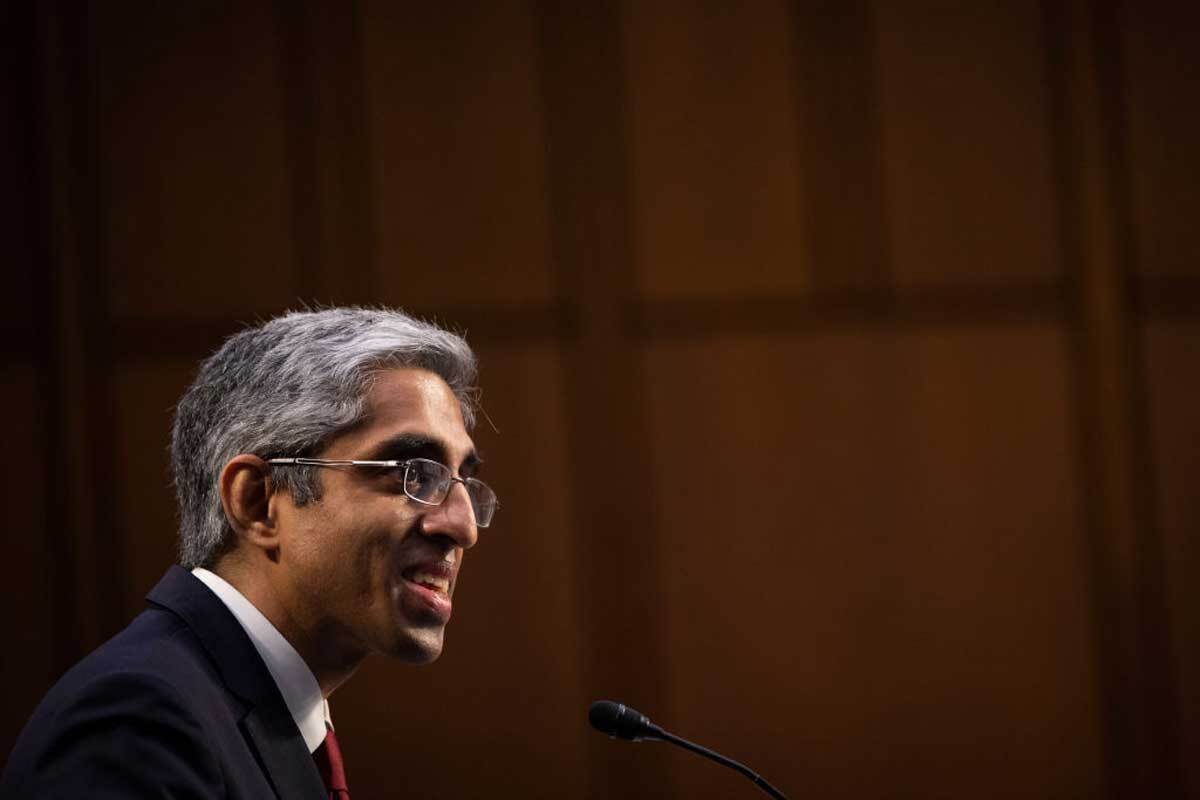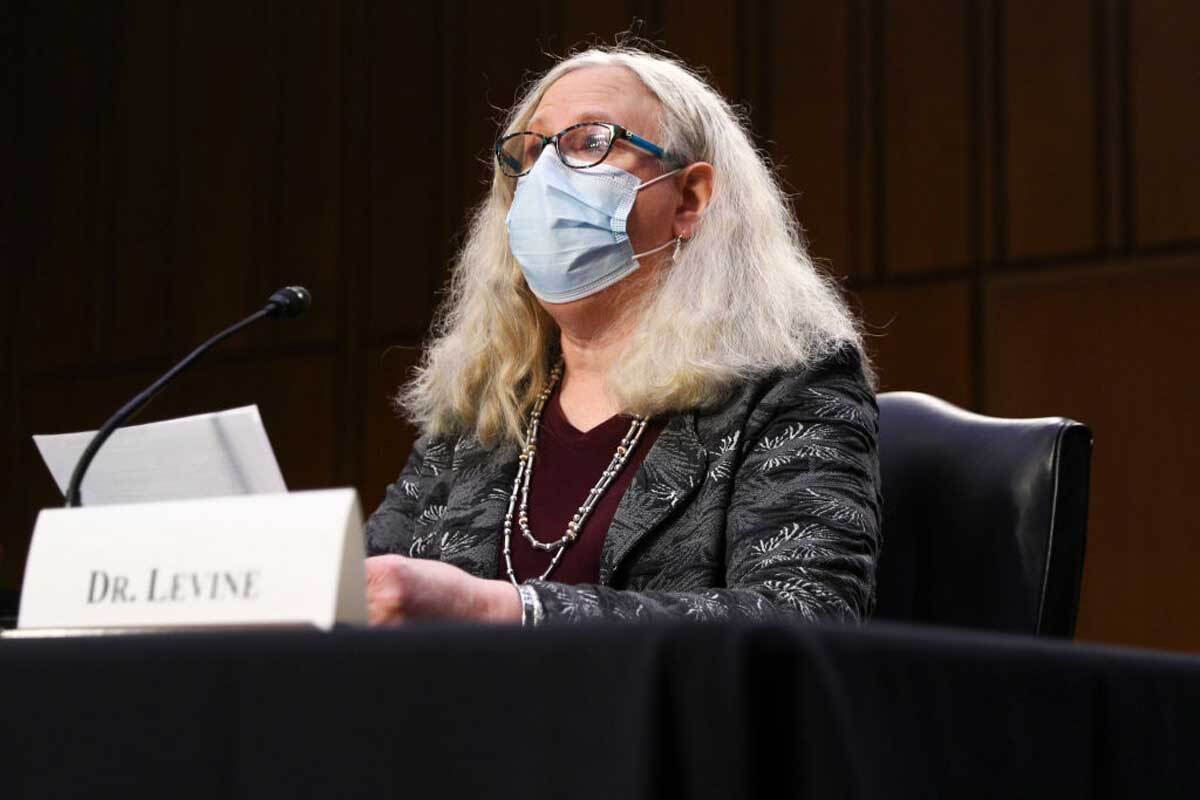Two nominees to fill health roles central to the COVID-19 response efforts in the Department of Health and Human Services (HHS) testified before the Senate Health, Education, Labor, and Pensions (HELP) Committee on Feb. 25.
Vivek Murthy, MD, nominee for surgeon general, and Rachel Levine, MD, nominee for assistant secretary for health, appeared jointly to testify on the experiences and expertise that have prepared them for those roles. In their testimony, Murthy and Levine cited their support for science-based decision-making. Murthy noted that, if confirmed, his three top priorities would be addressing the COVID-19 pandemic, mental health, and substance use disorders.

Committee members focused on the ongoing COVID-19 pandemic and the witnesses’ preparedness to lead the country out of the public health crisis. In her opening statement, Chair Patty Murray (D-Wash.) said that the coronavirus pandemic is “going to be stopped by swift action, and by public health experts like Dr. Murthy and Dr. Levine. So, I hope we can come together to confirm them in quick bipartisan fashion, and work with them the way families across the country so desperately need us to.”
Several members addressed health disparities and the health inequities exacerbated by the COVID-19 pandemic. Levine noted that social determinants of health would be “critically important in terms of influencing health outcomes from COVID and many other conditions.” Levine added that data collection, including questions about sexual orientation and gender identity, would be “crucially important” to better understand health disparities and “develop appropriate policies to address them.”

Murthy and Levine also addressed COVID-19 vaccine distribution, commenting on methods to address vaccine hesitancy in minority communities. Murthy stated, “We've got to understand what people's concerns are and then we have to bring the best of science to address those questions the best we can.” Murthy added that “people on the ground - faith leaders and educators and doctors and nurses - often know far more about what their communities need and what their concerns are. So, we've got to listen with them work with them. And together, I do believe that we can help reduce rates of vaccine hesitancy.”
The two witnesses also addressed vaccine equity, including the need to reach communities that have limited health care access. “The disparities we often see with vaccine distribution are often related to preexisting structural challenges that we have, one of them being a lack of access to health care, that many people unfortunately face,” Murthy stated. Levine added her support for President Joe Biden’s vaccine strategy, including distribution through federally qualified health centers. She noted the importance of ensuring vulnerable populations such as the African American community, the Latino community, and rural communities have access.
Sen. Ben Ray Lujan (D-N.M.) asked Levine about mental health care and telehealth. Levine noted that mental health issues would be at the “forefront as we work through the pandemic,” not just for health care providers but also seniors and children. She noted that broadband access would be critical to addressing mental health care to allow for telehealth access in rural populations.
Sen. Lujan continued by asking for Murthy’s solutions to address provider shortages in rural areas. “We need to train more clinicians and bring them to rural areas, and we can do that in part through expansion to the National Health Service Corps …and with the residency programs as well I think we can strategically work to train residents and place them ultimately in rural parts of our country that are in desperate need [of] medical providers,” replied Murthy.
Sen. Maggie Hassan (D-N.H.) asked witnesses how they plan to address the opioid epidemic, which has been exacerbated by the COVID-19 pandemic. Levine shared her “opioid stewardship” work in Pennsylvania, including opioid prescribing guidelines, a prescription drug monitoring program, naloxone distribution, and expansion of medication assisted treatment, and cited an ongoing need for funding for treatment. Murthy highlighted that if confirmed, he would also focus on integration of treatment with primary care and focus on prevention. Both Levine and Murthy noted the continued need to address stigma associated with substance misuse.
In advance of the hearing, AAMC President and CEO David J. Skorton, MD, wrote letters of support for both nominees. In his Feb. 19 letter to committee leadership, Dr. Skorton cited Levine’s experience as a clinician researcher and public health official, notably her work to address the opioid crisis and infectious diseases including HIV and COVID-19, as important qualifications for success as assistant secretary for health. ”She additionally has worked to raise awareness on gender identity issues and has advocated for equitable health care coverage, and she would serve as an important voice in efforts to address discrimination in health care,” he added.
In a Feb. 24 letter, Dr. Skorton cited Murthy’s past leadership on the addiction crisis and related call to action for health professionals during his tenure as the 19th Surgeon General. Dr. Skorton added, “For years, Dr. Murthy also has been outspoken about the public health implications of isolation, loneliness, and stress. This expertise will be particularly relevant during and after the COVID-19 pandemic to promote well-being within the general public and among frontline clinicians.”
No timeline has been established for the HELP Committee to reconvene and vote on the nominations.